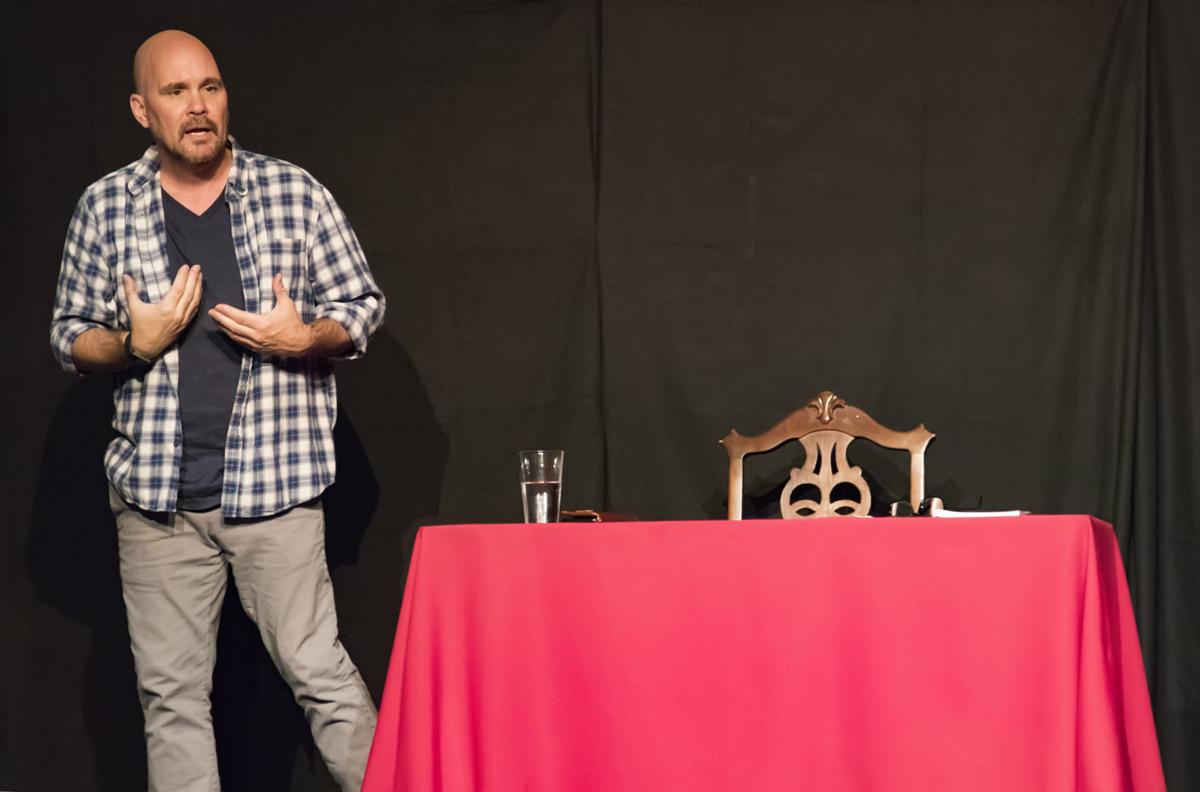The stage is bare save for a simple desk with a glass of water on it and a wooden chair.
Don’t be fooled by how innocent, how low-tech, it looks.
In The Tucson Labyrinth Project’s “Dogs of Rwanda,” we are easily transported into the middle of a genocide and a journey to forgiveness.
Actor Christopher Younggren in the role of David sometimes sits behind that desk, sometimes paces the stage as he tells the story of the genocide he witnessed when he was a 16-year-old missionary in Rwanda.
Now an adult haunted by what he saw, David has written a book as a way to expunge the horrors that have never left him.
But he left a detail out. A huge one for God’s Blessing, the young Tutsi who was with him as they fled death squads.
The play jumps back and forth in time, but Younggren, and Barclay Goldsmith’s deft direction, never let things get jumbled.
David is a callous fellow, dismissing relationships with barely a nod. He is hard, lacking empathy and much insight. But he loved once: As a teen he had followed his crush, Mary, to Rwanda, a country with staggering beauty.
“And then one morning, a dead body comes floating by,” he says. “At first, we think it’s an accident. We’ve never seen a dead body before. But then they keep coming.”
How do you handle that, other than try to forget it, push it away?
David can’t. He compares the memories to Sisyphus’ stone — relief from his burden seems unattainable.
But he keeps trying. So, 20 years after surviving, he writes that book. Then the note from God’s Blessing pulls him back to Rwanda, where he must relive the horrors to get to forgiveness for himself, and for God’s Blessing.
This one-act, one-man show written by Sean Christopher Lewis is riveting, and Younggren is so deeply rooted in the character and the story that the guilt, the trauma, David’s journey, are palpable. We’ve seen the actor do some very impressive work — this is the most impressive of all.
Despite the set, there is nothing simple about “The Dogs of Rwanda.” It is a powerful story powerfully told.





